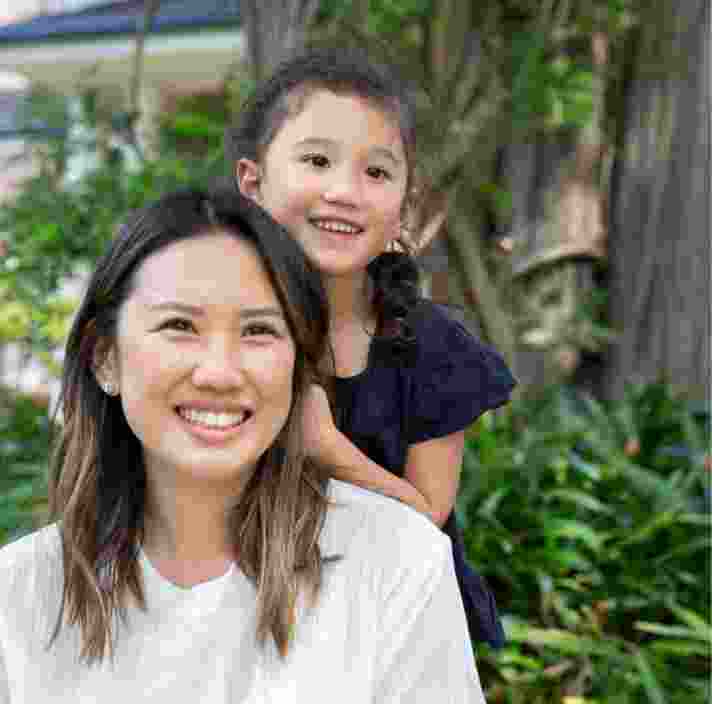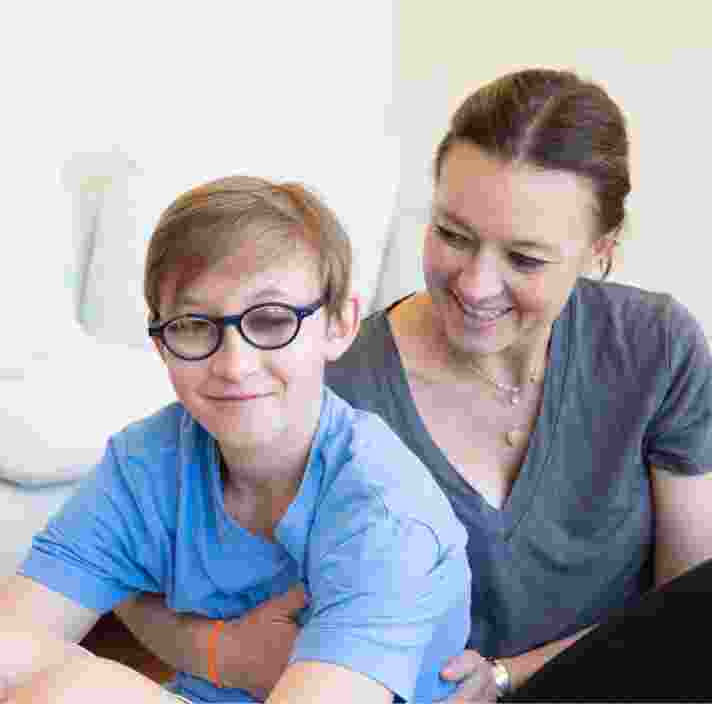What is an Orthoptist?
An orthoptist is a university-trained allied health professional who can offer a versatile set of skills to support your child.
If your child has low vision, Orthoptists are often the first port of call at Guide Dogs because they can support your child to understand their level of ‘functional vision’. That’s the amount of residual vision they can use in their daily life to participate in reading and other tasks.
Once you and your child understand their level of functional vision, an Orthoptist can provide strategies and recommend equipment to support their specific vision goals.

What are some common goals an Orthoptist can help with?
Every goal is uniquely tailored to your child's needs.
Orthoptist support will depend on your child’s level of vision, what they hope to achieve, and the type of equipment that may work best for them. Common goals include:
- Reading books, newspapers or magazines or doing hobbies for enjoyment
- Reading homework tasks and completing assignments independently
- Reading prices and labels in shops and supermarkets or menus when out
- Reading medications and identifying different ingredients in food products
- How to position themselves so that they can watch TV or movies more comfortably
- Reading street signs and public transport indicator boards and timetables.

What assessments are involved?
Assessing your child's vision to assist them to make the most of what they can see.
To understand your child’s level of functional low vision, an Orthoptist will conduct a series of tests designed to determine:
- What your child can see and how best to utilise their remaining vision
- What strategies and low vision aids will best help your child with their goals
- What lamp lighting and positioning could help to improve their functional vision
- How best to manage visual fatigue when reading or conducting tasks.
The answers to these questions will help the Orthoptist to recommend the best strategies and/or low vision aids to help your child achieve their goals.
An Orthoptic functional vision assessment can also provide useful information about your child’s vision for family members, friends, carers, or other health professionals. This can be particularly helpful for people who are either very young, non-verbal, or have multiple disabilities.
The vision tests can be modified depending on your child’s needs. Sometimes an assessment can be completed in one visit, while others may require multiple visits.
Where can my child see an Orthoptist?
Orthoptic assessments can take place in various settings.
Your options may depend on your child’s needs and where you’re located. Options can include:
- In your home
- In dedicated spaces at Guide Dogs Centres
- In kindergartens
- In schools.

Ready to continue?
Seems like you have filled this form earlier. Let’s pick up where you left off.

